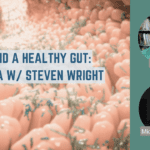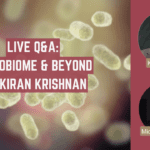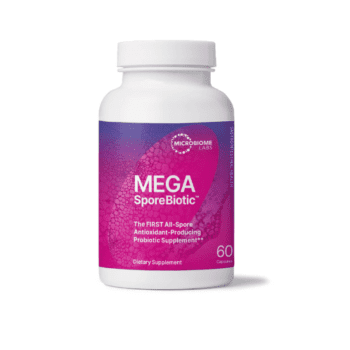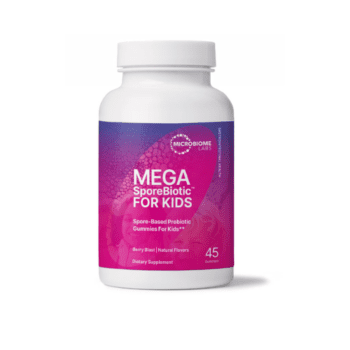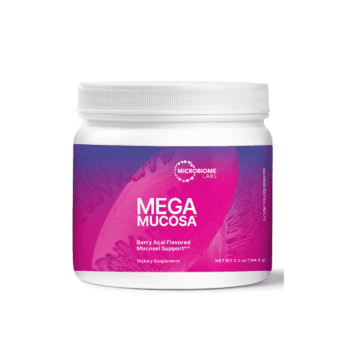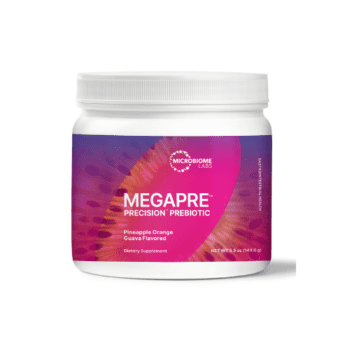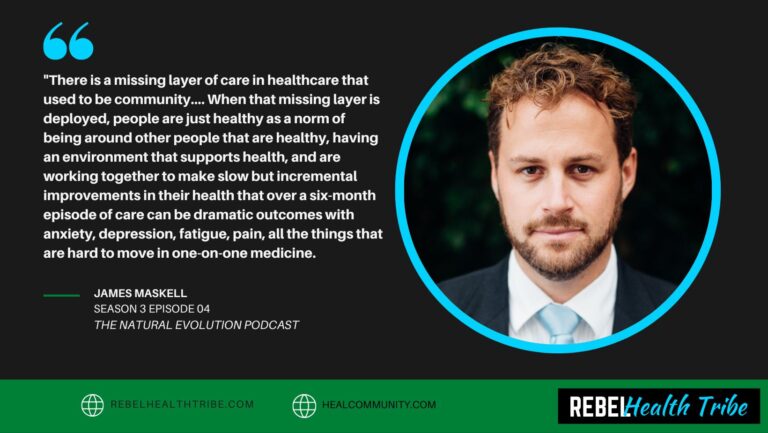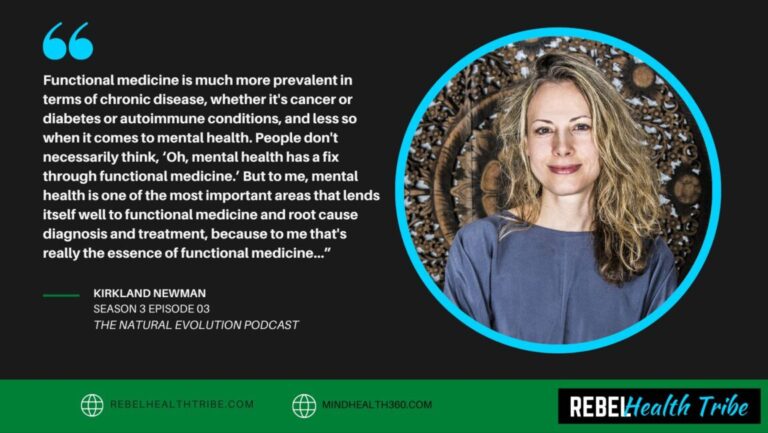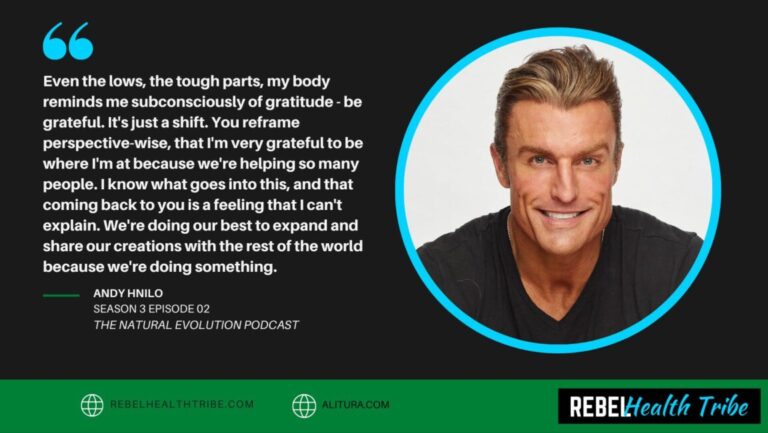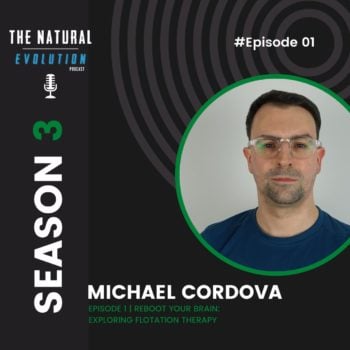
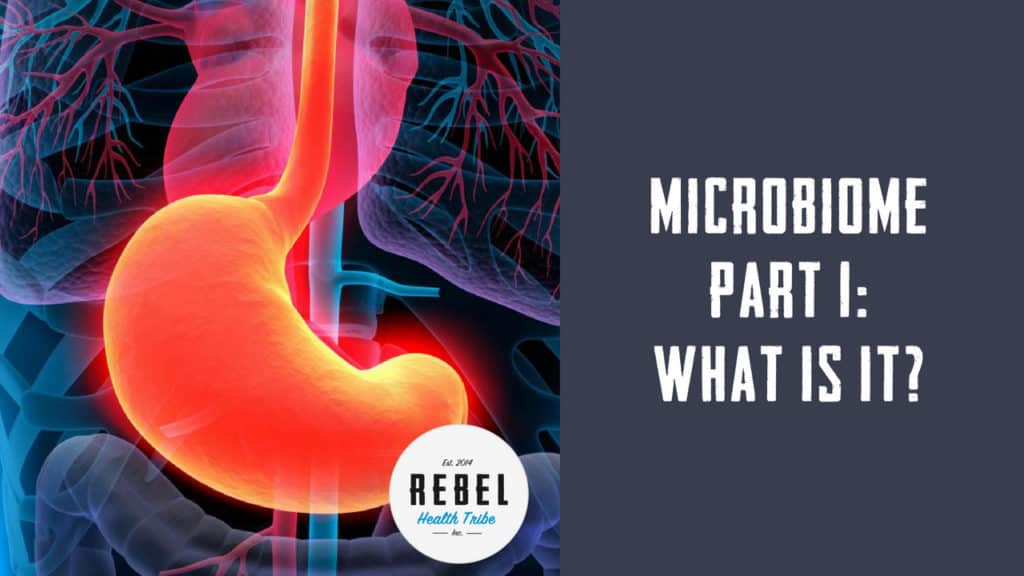
More Posts from
AutoImmune & Chronic Disease
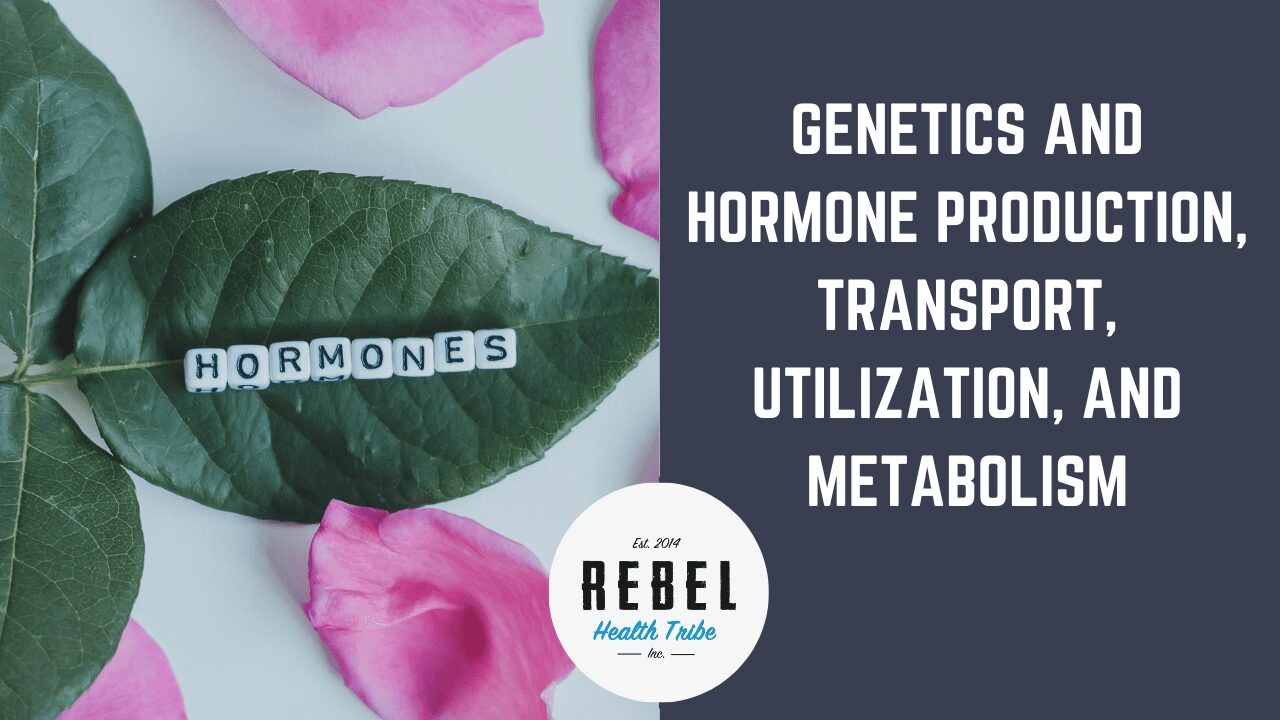
Genetics and Hormone Production, Transport, Utilization, and Metabolism
Our genetics play a larger role in our hormones than
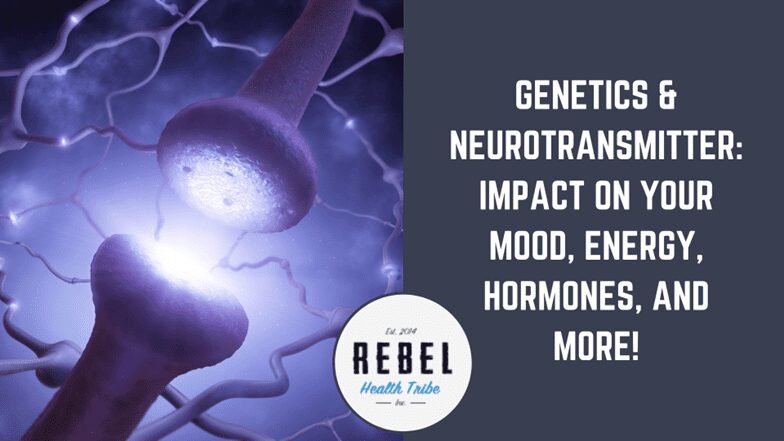
Genetics & Neurotransmitters: Impact on Your Mood, Energy, Hormones, and More!
Have you wondered why an antidepressant didn’t work for you?
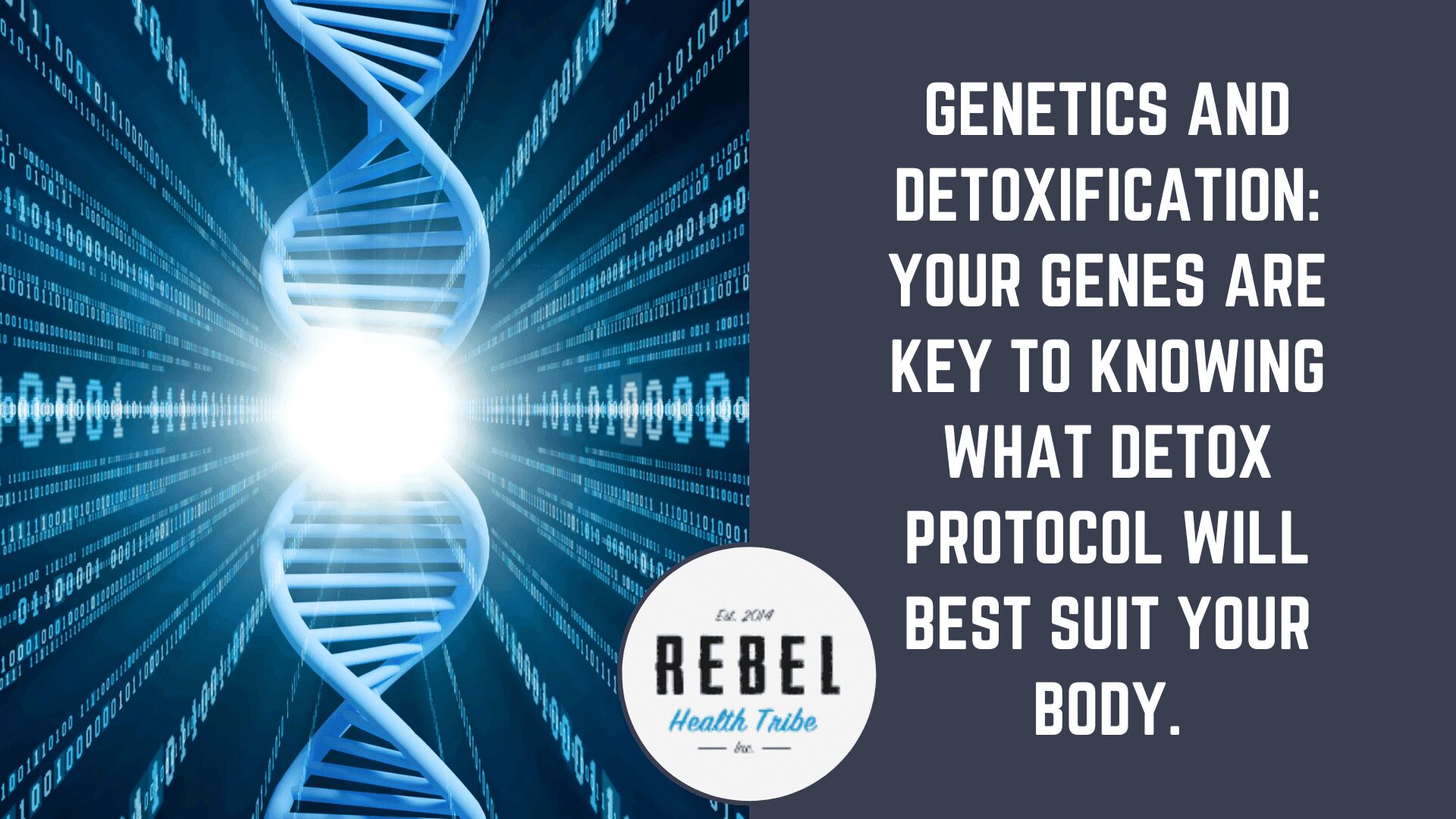
Genetics and Detoxification: Your genes are key to knowing what detox protocol will best suit your body.
https://vimeo.com/821487331 If you’ve ever bought a detox kit off
Michael:
So we’re gonna start with the basics. What is the ‘microbiome,’ and I put that in quotes, because that word is used a lot. When someone says ‘microbiome’ or we read ‘microbiome’ on something, what, exactly, does that mean?
Kiran:
The microbiome is defined as the totality of microbes and their genetic elements in relation to the host, which is the human. The genetic elements part of it is something that people tend to forget. It’s not just the bacteria. It’s not just the viruses and amoebas and all the other things that live in the body. It’s also their genes, and that becomes really important because the microbial genes outweigh human genes more than 150:1. We have three and a half million bacterial genes in our body that we utilize, versus about 22,000 human genes. So we really have to be considerate and careful about all the types of genetics that are within our body.
Michael:
Wow. So there are more genes being used in the body that are microbial in nature, outside of our own, than our own.
Kiran:
Yeah. Some of the latest estimates is that it’s almost 99%, meaning 99% of all our metabolic function, all the genetic elements that we count on to be human and perform and function come from microbes. Only 1% of who we are, what we do, how we do it, are all coded for by own own genes.
Michael:
That’s crazy. That makes my next question kind of silly, I think. What roles does the microbiome play in our health and in the healthy function of our own body? I guess it would be easier to say what roles doesn’t it play.
Kiran:
Yeah. That actually is an easier question. Some of the things we know that perhaps the microbiome may not be involved in is things like eye color, hair color, what your face looks like. These are the things our genes code for. But when it comes to disease, health, wellness, metabolism, how your brain functions, how your neurons function, all of that is controlled by the microbiome. In large part, your whole endocrine system, so all the hormones that you produce, your immune system, of course, is largely controlled by the microbiome, your metabolic system, which is how your body responds to food … Do you gain weight easily or is it hard for you to gain weight? Are you one of those people that can eat whatever you want and never gain weight? Risk for diabetes, all of these things, are controlled by the microbiome.
Now, there’s even evidence that mating behavior and attraction is controlled by microbiomes, meaning our microbiomes can somehow sense one another and that gut feeling you get about a person, or that instinct you get about a person, that attraction, some of that is dictated by the microbiome. If your microbiome likes someone else’s microbiome, there’s evidence that your microbiome can produce pheromones to make you more attractive to that other person.
So they control everything, basically, and if we’re not addressing the microbiome in our journey of health and wellness, we’re only addressing one percent of who we are. We’re ignoring 99% of everything else.
Michael:
That’s crazy. I see the new pick-up lines forming out there at bars.
Kiran:
Yeah. Exactly. I always tell people-
Michael:
“Hey, baby. My bugs like your bugs.”
Kiran:
Yeah, “Our poop matches.”
Michael:
That’s smooth. That’s crazy. So the whole … We’ve talked about this on our webinars before. The funny picture of little microbes in my head with joysticks and buttons, it’s really not that far off.
Kiran:
Yeah. It’s absolutely true. They are controlling everything. But here’s the most exciting about knowing that. All of these conditions that we thought were life sentences, and long-term, chronic infections, or chronic syndromes, everything from simple things like allergies, asthma to more advanced things like Parkinson’s disease, are now said to be controlled by microbes.
If they’re controlled by microbes, that means all of these conditions are an ecological problem, meaning they come about because of the ecology of the microbiome is off. If that’s the case, then we can change it. What we now know is that … or at least we’re coming to understand … the vast number of diseases that we suffer from, that people die from and cause so much morbidity and mortality, are likely curable. The solutions may be simple, and maybe just adding the right nutrient, adding the right type of bacteria. It’s really, really exciting. Hands down, we live in the most exciting time in medical history, since the discovery of DNA, or even before that, since the discovery of antibiotics, where people weren’t dying of simple things like pneumonia anymore.
Michael:
So these organisms that run my life and my body and my health and decide whether I’m still alive or not and if I can digest my food and if I make the right hormones or if I have energy today or if I can fall asleep tonight or how my body eats my lunch, where do they come from? How did they get there? How do we all have such different … I’m guessing our make-ups are pretty different. I’m guessing if no two people have the same fingerprints, no two people probably have exactly the same microbial make-up of the microbiome. How do those organisms get there? How is that populated?
Kiran:
That’s the most unique thing about us, is our microbiome. No two individuals that they’ve ever tested so far, and they’ve tested hundreds and hundreds, if not thousands, of people already … No two people have the same distribution of organisms in the microbiome, and that’s really what causes so much disparity between how people react to things in the world.
For example, you may be not sensitive at all to gluten. You could eat gluten and be totally fine, and I would eat gluten and maybe it would put be in the hospital. Those kind of disparities come from the microbiome. It’s not a gene. Also, they’ve done numerous studies on identical twins who have exactly the same DNA. They have 100% same genes, and yet the microbiomes can be 20-30% different. So that is the most unique aspect of ourselves. The interesting thing is where the microbes come from and how they settle into your system, and why everybody has a different microbiome, even identical twins.
In utero, there’s some small level of inoculation happening while we’re in mom’s tummy. There’s actually microbes being brought into from her digestive tract and transferred through the cord blood and into the amniotic fluid. There seems to be evidence that there’s some small amount of inoculation happening in utero. But then once we are ready to be born, we pass through the vaginal canal. The vaginal canal is our initial inoculum to all of the good microbes that will eventually settle into our system.
So you pass through the birth canal. That’s when you get your huge inoculum, your huge dose. You come out into the open world, and then you’re surrounded by microbes everywhere, even if you’re in a “sterile” hospital. Nothing’s ever sterile there’s always microbes around. So the first people you come into contact with — the nurses, the doctors, the dad — they’re giving you microbes and exchanging microbes with you. Then the other part is mom’s breast milk. Breast milk becomes so important. Breast milk has six to eight hundred different species of bacteria in it. Breast milk has over 200 different prebiotics in it, none of which the baby can digest for energy. All of them are there strictly to allow the microbes to implant themselves. So passage through the birth canal, interaction with mom and dad and family members soon after birth, and then also breastfeeding are the primary sources of the microbes that end up inhabiting your gut.
Now, you could take two people, like identical twins, for example, expose them to all the same microbes, like identical twins are, but what settles into their system, what becomes their unique microbiome, will be different. That part of it is not quite well understood. What is the crosstalk between the types of microbes we’re exposed to and how our body decides who stays and who goes? That part is really interesting. That’s where we all become very unique and different.
Studies show that around 838 days after birth, so around 2 1/2 years after birth, we basically have established our full, adult microbiome. Those bugs are with us. They’re here to stay, and from that point in life, it’s just exposure to bacteria in the outside environment, and then also how we manage the microbiome, the ebbs and flows of the different species and groups of bacteria, based on our lifestyle.
Michael:
How do things like endless rounds of antibiotics as a kid affect that? That was my life. I had ear infections and mouth inf[ections] … all these things, and that awful, pulpy, bubble gum-flavored antibiotics that I had to drink all the time. I’m not entirely knocking antibiotics. Obviously there’s times where they save lives, and they’ve saved a lot of lives. But we tend to, in my opinion, overuse them quite a bit for every little thing that’s wrong with anyone. How does that impact this development?
Kiran:
Your opinion is actually correct. It’s based on fact, because even the CDC, the Centers for Disease Control, estimates that at least 50% of the prescribed antibiotics are done so for viral infections, and things that the antibiotics don’t help. If they’re estimating 50%, it’s probably a little bit higher than that. My guess is it’s probably around 70%.
I’ve spoken to a lot of pediatricians. I’ve spoken to a lot of urgent care. We’re actually setting up some research with a couple of urgent care facilities here in Chicago. What they tell us is when a child is sick, and they come into the doctor’s office or the urgent care center, the doctors are getting a lot of pressure from the parents to give them something. I can totally understand that. It’s really hard to see your child sick, and you really want them to get better. There’s that parent, instinctual pressure. If the doctors don’t prescribe things, even though they know that, “Well, this is likely a viral thing, and antibiotics aren’t going to help,” if they don’t give you something like a prescription, then the patient just doesn’t come back. That’s what I’ve been told.
That was surprising to me because at the end of the day, medicine is still a business. If doctors are being headstrong and saying, “It’s a viral infection. Ninety percent of ear infections and sinus infections are typically viral, so you don’t need an antibiotic. Go home and just deal with it,” patients are going to come back. They’re going to look for a doctor that will prescribe it. That’s where things start to fall apart.
Now, to answer your question, it has a huge impact. Even a single course of antibiotics within the first three or four years of life has been shown to have potential long-term impact on the health of the individual. That’s everything from their metabolic health, increasing their risk for being obese and diabetic and with weight retention, and then also immune health, increasing their risk for developing allergies, asthma and so on. Multiple rounds of antibiotics increase that risk quite dramatically.
There was, I believe, an estimate by … I read it in the paper. It was something like three or more rounds of antibiotics in the first four years of life has a huge, substantial impact on the long-term health of the child because sequentially, as you keep using antibiotics, the problem is it destroys your immune system and your microbiome, which controls your immune system. It makes you more susceptible to more infection. Then you need it more and more. It has a huge, huge impact on the long-term health of the individual.
Michael:
Anything else, factors in modern life, or things that we encounter regularly, that can lead to dysfunction or imbalance in microbiome, aside from antibiotics?
Kiran:
Yeah, especially when it comes to kids. This applies to adults as well, but being too sterile, being too clean. The hygiene hypothesis is a real thing. If you have babies in the house and they’re crawling around on the ground and the ground is completely sterilized … Well, it’s never completely sterilized, but it’s cleaned with Clorox and all these other disinfectants, that actually has a very negative on the child’s long-term immune system. We need to encounter microbes. We need to encounter viruses and things like that in order for our immune system to learn how to function.
Our immune systems starts off with all of this equipment, but without any knowledge of the world around it. It has to come into contact with the world around it in order to be able to understand how to function. Studies have shown that households with dogs, for example, people tend to have healthier immune systems and get sick less because the dogs go out, they bring dirt and things in. Households that have more individuals, like six, seven individuals living in one house versus one or two. With more individuals, you tend to have less illness because we’re sharing microbes quite a bit, and that’s a good thing.
So try to stay away from the whole antibacterial soaps, hand soaps, body soaps, all of the chlorine-based cleaners or ammonia-based cleaners. Trying to sterilize your environment is a real, real detriment to your immune system and your gut. Also, consuming foods with preservatives in them, with antimicrobials in them, like meat products. Most meat products will have high levels of preservatives and antimicrobials in them. Those can have a negative impact on your gut. Even drinking water with high degrees of fluoride in them, or chlorine, that can have constant die-off situations within your microbiome itself. So getting a really good carbon filter from your home, removing things like chlorine and fluoride in water, can have a huge impact on how your microbiome functions. The other thing is just get out into nature and get dirty a little bit. We just don’t do that enough, and that’s such an important part of how our body develops.
Those are the key things, and really feeding the microbiome. We talk about that as well, how you feed the microbiome has a huge impact on the health of the microbiome.
FEATURED PRODUCTS
-
MegaSporeBiotic
$59.99 – $176.95MegaSporeBiotic™ is a 100% spore-based, broad-spectrum probiotic shown to be...
-
MegaSporeBiotic For Kids Gummies
$39.00MegaSporeBiotic™ Gummies are a 100% spore-based proprietary probiotic blend that...
-
MegaMucosa
$59.99MegaMucosa is the first complete mucosal support supplement of its...
-
MegaPre Prebiotics Powder
$59.99MegaPreBiotic™ is the first Precision Prebiotic™ supplement made up of...
Get Social
Recent Podcasts
Recent Courses
Autoimmune Masterclass 2024
Autoimmune Masterclass brings together 17 of the world’s
Toxicity & Detoxification Masterclass
The toxicity and Detoxification Masterclass covers a wide
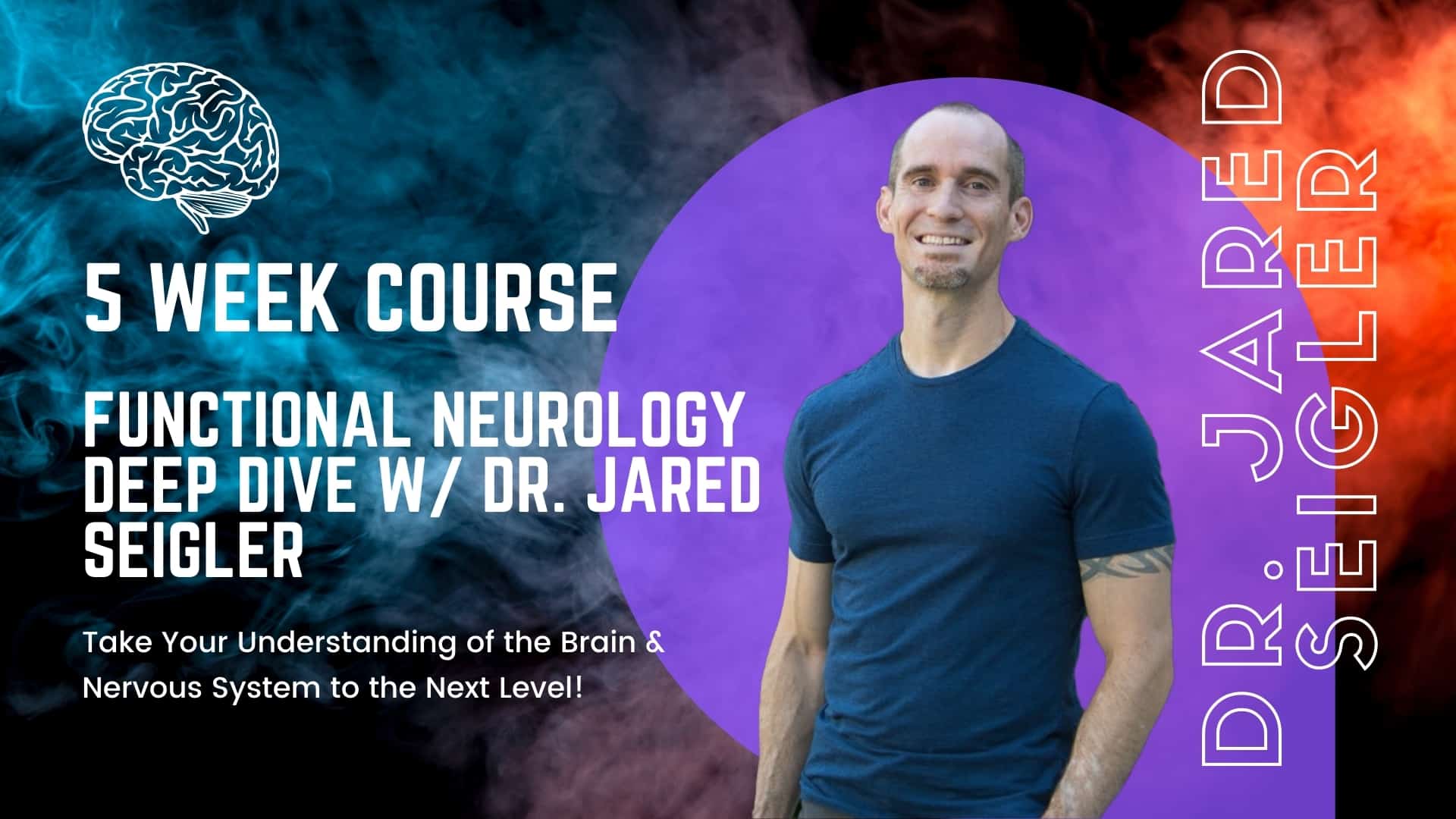
5-Week Functional Neurology w/ Dr. Jared Seigler
Learn how to improve your brain health and
Brain & Nervous System Masterclass
16 Leading Experts Share Cutting-Edge Science, Effective Practices,
Get the RHT Newsletter
Be the first to get access to special offers, new podcasts, courses, products and events from Rebel Health Tribe.
Facebook
Twitter
Pinterest
LinkedIn
Reddit
WhatsApp
Telegram
StumbleUpon
-
MegaSporeBiotic
$59.99 – $176.95MegaSporeBiotic™ is a 100% spore-based, broad-spectrum probiotic shown...
-
MegaSporeBiotic For Kids Gummies
$39.00MegaSporeBiotic™ Gummies are a 100% spore-based proprietary probiotic...
-
MegaMucosa
$59.99MegaMucosa is the first complete mucosal support supplement...
-
MegaPre Prebiotics Powder
$59.99MegaPreBiotic™ is the first Precision Prebiotic™ supplement made...
Autoimmune Masterclass 2024
Autoimmune Masterclass brings together 17 of the world’s leading doctors, researchers, and experts on autoimmune diseases who each present their
Toxicity & Detoxification Masterclass
The toxicity and Detoxification Masterclass covers a wide array of topics with the following guests: 1. Lara Adler, Environmental Toxins
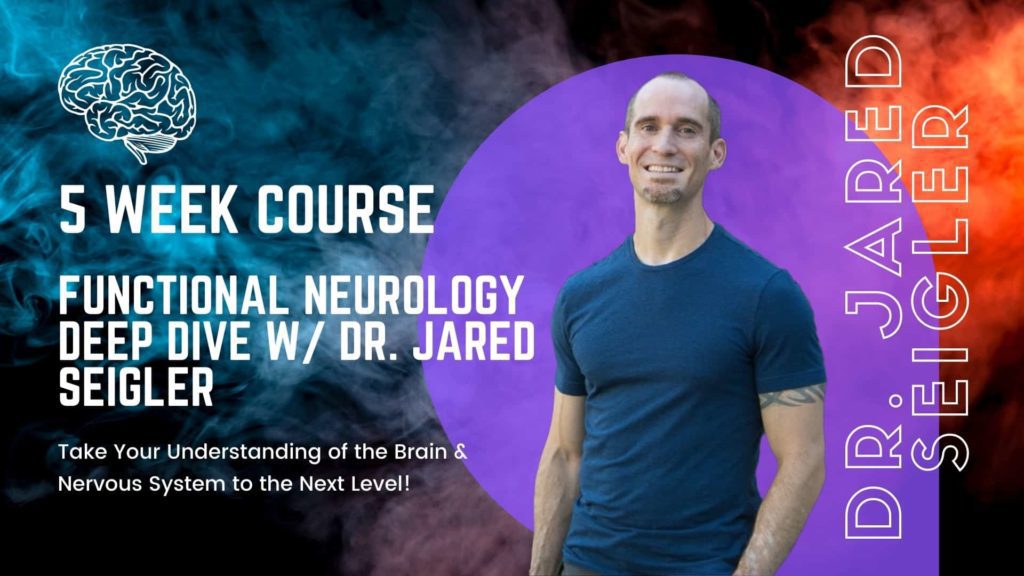
5-Week Functional Neurology w/ Dr. Jared Seigler
Learn how to improve your brain health and function with this Functional Neurology course from Dr. Jared Seigler.
Dr. Seigler


